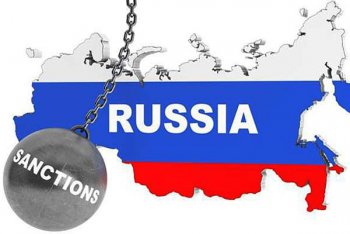Washington’s Proposed New Sanctions Against Turkey also Aimed Against Russia

With the world fixated on Turkish actions against Syria, Greece and Libya at the moment, the Committee on Foreign Affairs of the Senate of the United States Congress approved a bill, “Promoting American National Security and Preventing the Resurgence of ISIS Act,” spearheaded and thoroughly promoted by staunch anti-Syria/Venezuela/Iran/Russia Democratic Senator Robert Menendez who celebrated the bills passing on his Twitter. The Republican-led Senate Foreign Relations Committee voted 18-4 to send the bill for a vote in the full Senate.
The approval of the bill was widely reported in the mainstream media as an “anti-Turkey bill.” Senator Jim Risch, the panel’s Republican chairman, a fellow endorser of the bill with Menendez, said that the approval of this bill is because of the “drift by this country, Turkey, to go in an entirely different direction than what they have in the past. They’ve thumbed their nose at us, and they’ve thumbed their nose at their other NATO allies.”
According to the draft bill, the Turkish acquisition of the powerful S-400 missile defense system gives grounds to impose sanctions against this country, under the Countering America’s Adversaries Through Sanctions Act (CAATSA). In particular, the document restricts the sale of U.S. weapons to Turkey and imposes sanctions on Turkish officials responsible for supplying weapons towards their illegal military operation in Syria.
Turkey signed in December 2017 the first contract with Russia for the purchase of the S-400 for a value of $2.5 billion, which caused tension in relations between Ankara and Washington. The U.S. demanded that Ankara renounce that transaction and buy U.S. Patriot systems, and threatened to delay or cancel the sale of the F-35 fighters to Turkey. Ankara refused to make concessions and assured that its purpose of acquiring Russian systems remains firm.
What was missed, perhaps intentionally by the majority of the mainstream media is that this bill has a heavy anti-Russian/Syrian component to it. Although not as detailed and expansive as the Turkish section of the bill, it claims that “the Russian Federation and Iran continue to exploit a security vacuum in Syria and continue to pose a threat to vital United States national security interests,” without explaining what these security interests are, exactly as we have become accustomed to.
According to the bill, there will be a
“list of each Russian person that, on or after such date of enactment, knowingly exports, transfers, or otherwise provides to Syria significant financial, material, or technological support that contributes materially to the ability of the Government of Syria to acquire defense articles, defense services, and related information.”
Although the bill has not said which specific Russians, the nature of the bill means that there will be inevitable sanctions against Russia as it is a top weapon exporter to Syria, which will unlikely change despite of the new sanctions. Those in the eventual sanction list will face an American blacklist, which means a ban on entry, freezing of assets in the United States, a ban on doing business with this person for American citizens or companies. At the same time, the bill allows that the US President can consider each case separately and refuse to impose sanctions.
These proposed new sanctions that will have to pass the House of Representatives, which passed its own anti-Turkish sanctions bill by an overwhelming 403-16 vote in October, is part of a wider effort for the U.S. to keep pressurizing Russia’s economy. On December 9, the committees of both chambers of the U.S. Congress previously agreed on the military budget for 2020, which includes restrictions against the Nord Stream 2 and Turk Stream pipelines to bring Russian energy to Europe, infrastructures designed to raise Europe’s energy security. The U.S. bill that provides sanctions against companies participating in the laying of the Nord Stream 2 gas pipeline aims to obtain unilateral advantages in the gas area to the detriment of the interests of the countries of Europe. This prompted the chairman of the Board of Directors of the Russian-German Foreign Chamber of Commerce, Matthias Schepp, to explain that the new measures against Nord Stream 2 affect not only Russia, but, above all, European companies and Germany’s energy interests.
Washington is frustrated that European energy policy is decided in Europe, not in the U.S., which calls into question the cooperation between the U.S. and Europe. It is a very risky measure and Europe would need to have a blunt attitude of rejection of these measures imposed by the U.S., because its own economy is at risk.
Effectively, the “Promoting American National Security and Preventing the Resurgence of ISIS Act,” which strangely targets Russia who had a greater role than the U.S. in defeating ISIS terrorists, is just another way for Washington to warn other countries not to buy the S-400 or Russian military equipment or engage in energy diplomacy with Moscow. It is unlikely that this will deter states from conducting arms and energy deals with Russia as Moscow has been pioneering anti-sanction measures to protect financial transactions without punishment, and rather it demonstrates a Washington that is becoming increasingly desperate in the Era of Multipolarity.
Paul Antonopoulos, Research Fellow at the Center for Syncretic Studies

